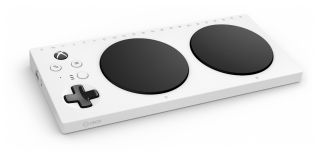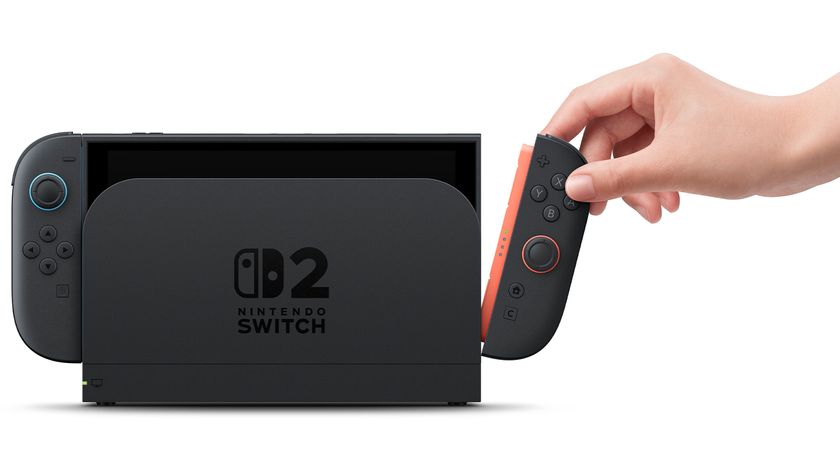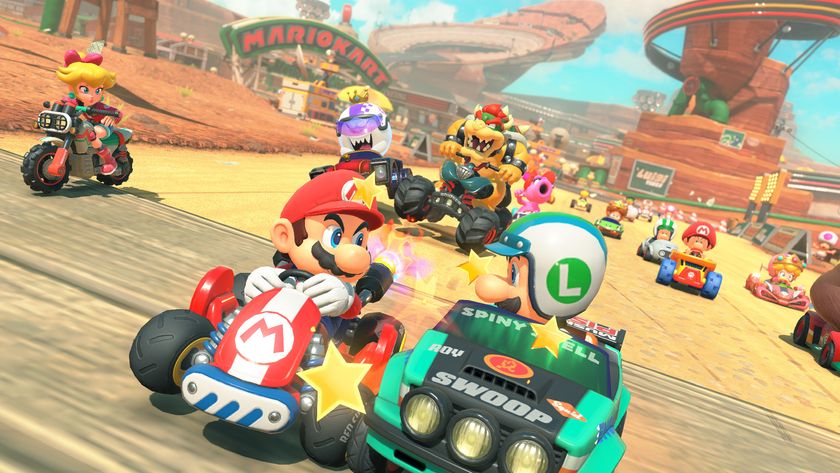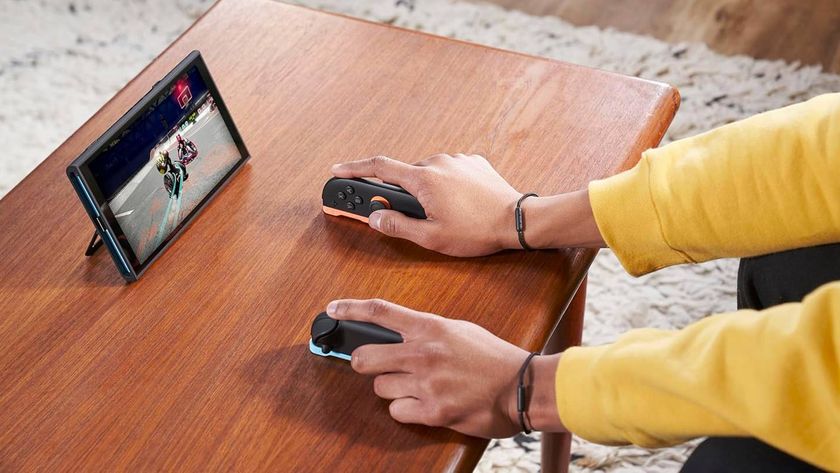Thinking outside the box: How Microsoft is spearheading innovation and inclusivity with the Xbox Adaptive Controller
OXM takes a closer look at the Xbox Adaptive Controller, what it means for disabled gamers, and why it’s the most innovative controller in the world

This has been far too long coming, but finally a more readily available device for gamers with various disabilities has launched to join the best Xbox One accessories. While it’s previously been possible to get set-ups for those with motor issues or other physical disabilities using custom hardware, the Xbox Adaptive Controller provides a base to make such set-ups more readily available so even more gamers around the world can join in on one of the planet’s greatest hobbies.

The 30 best Xbox One games
We’re incredibly glad to see such an inclusive controller join the ranks of Xbox hardware history, but how exactly did it come to be and what does it mean for those with disabilities which this is designed to help? Why does it look the way it does and what makes it so special? We decided to take a closer look at why this is such a massive step forward for gamers around the globe.
Designed to work with a range of different peripherals, the Adaptive Controller can be customised to fit the lifestyle of whoever is playing it and can be hooked up to both Xbox One consoles and any PC game that supports the use of an Xbox One controller. It’s a small but significant step that opens up gaming to thousands more people around the world that’s been far too long coming. While there are currently set-ups for disabled gamers featuring devices such as pedals and larger joysticks for easier movement, they’re incredibly expensive as they have to be custom-made for each person and their unique situation.
It also means they’re limited to using PCs which have the infrastructure to support a custom set-up. Current solutions are rather limited, with most unable to get their hands on a set-up. The Xbox Adaptive Controller changes all of that by providing a hub that’s easy to use and set up as well as customisable to adjust to a wide array of disabilities. It is also compatible with other pre-existing solutions out there, as well as opening up the world of console gaming to all.
Close up

The real breakthrough idea is the 19 inputs at the back of the device that map to every single button on an Xbox controller. Each one uses a 3.5mm jack which is a standardised size so will be compatible with a huge range or pre-existing buttons and joysticks. It also makes the whole design incredibly customisable, allowing various add-ons to be inserted depending on what control schemes will be the most useful to you. The design goes one step further, by having small grooves above each slot to help guide your placement so the controller doesn’t need to be turned or lifted. It’s a small touch but the kind of thing that makes a huge difference to someone who may not have the ability to reach the back of the device easily. Of course each one is clearly labelled across the top to make locating them as easy as possible.
The main body of the controller is large enough to fit across a person’s lap without being too heavy and the surface features two big buttons that are domed to make activating them easier. Plus there’s a larger directional pad. There’s also enough space between the buttons to be able to comfortably rest your hands if needed, or attach custom buttons to its surface depending on the needs of your set-up. The whole thing is also slightly angled, giving it a wedged shape that makes it a lot more comfortable to use as it leans towards you. The underbelly of the controller also boasts its own set of innovative secrets, one being holes for various standardised mounts so you can attach the device to a tripod or other secure rig to set it at an appropriate height.
The material used also has a surprising amount of grip, so if you’re placing it on a table or desk it won’t ever slip while you’re using it in the middle of an important boss battle. Again, these might seem like small touches, but it’s the kind of flexibility that means a whole lot to people in varying situations. Finally, it has a very clean, white overall design that looks right at home alongside Xbox’s standardised controllers. It doesn’t look like a disability product and that’s very much deliberate, so that it feels a lot more inclusive. It doesn’t feel like something ‘other’ that someone with a disability may feel singled out by using, it feels right at home sitting next to your Xbox and television at home.
Sign up to the 12DOVE Newsletter
Weekly digests, tales from the communities you love, and more

Again, it’s a hugely important aspect of the design, for so many people of varying disabilities who are unable to game to have a device that doesn’t make them feel like outsiders. It makes it easier for them to take part and is a great step at getting more people involved in the hobby. Of course Microsoft wouldn’t have been able to create the Adaptive Controller without the help of a lot of different agencies and charities around the globe, as well as disabled gamers themselves. It couldn’t have come to fruition without the aid of The AbleGamers Charity, The Cerebral Palsy Foundation, Special Effect, Warfighter Engaged as well as a legion of community members helping them test every iteration of the device and providing heaps of feedback at every stage.
Better together
“This has been a milestone collaboration for us,” says Special Effect Founder and CEO Dr Mick Donegan. “Our experience in helping people with complex physical disabilities to access videogames has enabled us to provide not only very relevant advice about features and design, but also direct feedback from a user-centred perspective. Microsoft has a competitively-priced product here that has massive potential to help many more people globally to enjoy the magic of videogames.
“Creating complex game control set-ups for people with severe disabilities takes time, care and specialist expertise,” says Donegan. “With so many factors to be considered – comfort, safety, positioning, equipment selection and mounting – this first-party product provides a terrifically versatile and effective way of connecting our game set-ups to the console.”

“It doesn’t feel like something ‘other’ that someone with a disability may feel singled out by using”
However, the true impact of the Adaptive Controller probably won’t be felt until next year, when it’s reached the intended audience and gestated within their homes across the world. So far, the dev team has been surprised by the different ways their test groups have customised it to fit around their movement needs, and we imagine there will be even more set-ups shared as the controller spreads further and further across the globe.
It’s also not prohibitively expensive, costing £74.99 or $99.99 in America, and since it’s compatible with most existing peripherals it should integrate into existing set-ups well. It’s great to see Microsoft leading the charge for inclusivity for disabled gamers and we can’t wait to be able to play with a wider range of people, only to probably get absolutely smashed by them in the likes of Fortnite and FIFA 19. Bring it on.
This feature originally appeared in Official Xbox Magazine. Pick up a copy now or subscribe so you never miss an issue.
Daniella is a freelance consultant, writer, and editor, who was formerly deputy editor at Official Xbox Magazine before its closure. Her words have appeared on the Guardian, Eurogamer, PC Gamer, and GamesRadar, among others. She's a Final Fantasy 14 aficionado.

Nintendo heads off the Zelda lore debate that surrounded Age of Calamity by preemptively confirming that Hyrule Warriors: Age of Imprisonment is "canonical"

Deltarune has finally been given a price tag, and Toby Fox says that future chapters beyond 4 "will be added as free updates" so "you only have to buy the game once"










